Philosophy

John Bellamy Foster takes readers back to Marx’s understanding of the dialectics of nature and society. As Marx and Engels noted, humanity must not only struggle for the advancement of human freedom, but also the capitalist destruction of the earth. Today, the struggle for freedom and the struggle for necessity coincide everywhere on the planet for the first time in human history, creating a prospect of ruin or revolution. | more…
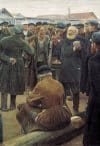
In the past and in his own time, Marx has been portrayed as endorsing the enclosure of the commons as a necessary historical stage on the path to socialism. However, a more accurate account, one that is critical of the enclosure movement, can be found in his response to the destruction of commons-based peasant communities in Russia—while it was actually happening. | more…
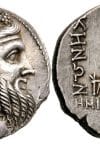
Revisiting the Bonn Notebooks
There is hardly any theme in Karl Marx’s theoretical corpus that has garnered as much traction as his theory of fetishism. Ever since Marx introduced the term into his critique of political economy in Capital, fetishism became a field of theoretical force. While much ink has been spilled on the specific content and theoretical scope of fetishism in Capital, young Marx’s initial exploration of the term has rarely enjoyed critical attention. | more…
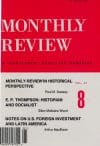
Monthly Review was started in 1949 and is now in its forty-fourth year of publication, so you could say that MR‘s existence is pretty much coterminous with the second half of the twentieth century. What have been the most important characteristics of this half century? | more…
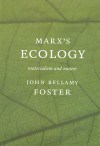
More than twenty years after the publication of John Bellamy Foster’s Marx’s Ecology (2000), ecosocialist scholars continue to explore the evolution of Marx’s ecological thinking, from the Greek atomists to his later work on ethnology. | more…

John Bellamy Foster’s recent work, The Return of Nature, makes a strong case that Marxism’s central, materialist conception of nature and history makes it the best possible theoretical basis for radical ecological scholarship. | more…

Recent scholarship suggests that the widespread perception of Soviet states as uniquely ecologically disastrous is, at best, exaggerated, and that these environmental legacies must be re-examined. | more…

Contradicting previous liberal notions of an “end of history,” humanity is now facing unprecedented threats to our species’ survival, but an environmental proletariat to combat them is emerging. | more…
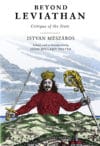
In Beyond Leviathan: Critique of the State, István Mészáros closes a trilogy that was first outlined in Marx’s Theory of Alienation, later greatly developed in Beyond Capital, and is now concluded in this new work. Throughout his immensely rich work, Mészáros developed, amid many original formulations, an increasingly relevant concept: capital’s order of social metabolic reproduction. | more…
Did Karl Marx have a theory of race and capitalism? Not exactly, but he theorized on these issues over four decades and much of what he wrote still speaks to us today. At a time of global and U.S. struggles for liberation in the face of a deeply racialized fascist threat, these writings are worth revisiting. | more…

For Georg Lukács, revolution represented the realm of the objectively possible. He saw the tragedy of action as a necessary element in a movement toward greater human freedom synonymous with historical necessity. | more…

Across the humanities and the social sciences, critical attention is being given to the nonhuman as an ecological, philosophical, and political problem—the nonhuman here meaning anything from animals and plants to manufactured objects. Going under names as various as new materialism, political ecology, and object-oriented ontology, these studies comprise a movement that is largely described as the nonhuman turn. | more…










